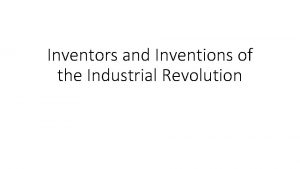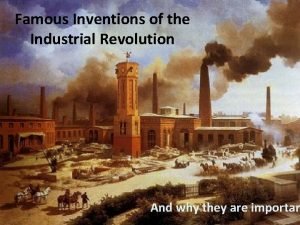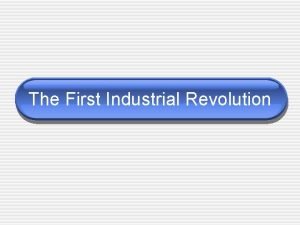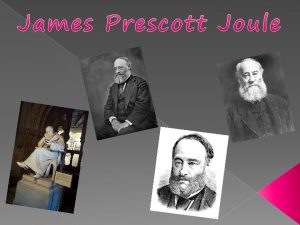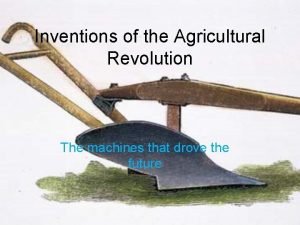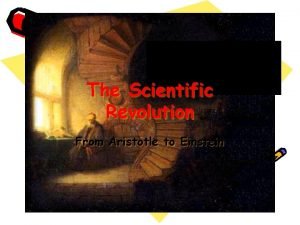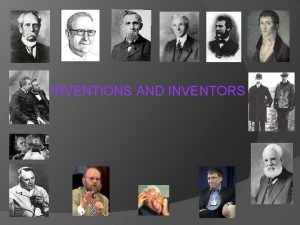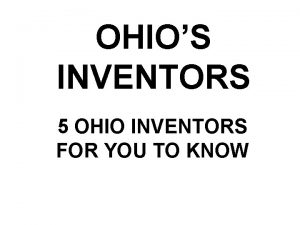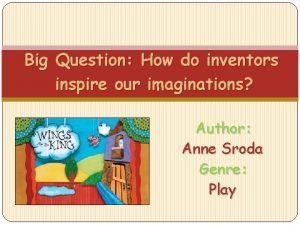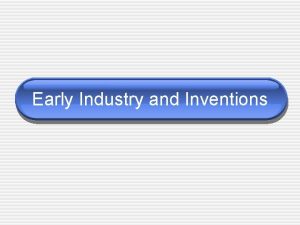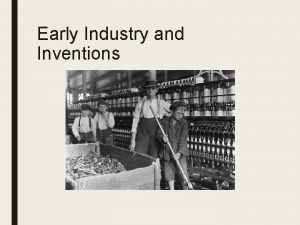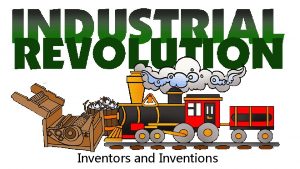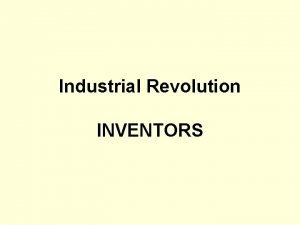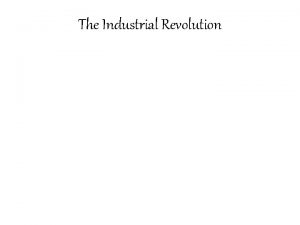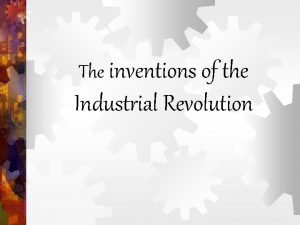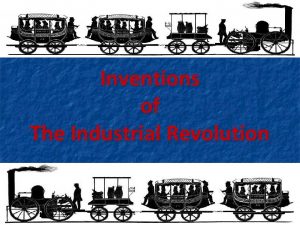Inventors and Inventions of the Industrial Revolution James









- Slides: 9

Inventors and Inventions of the Industrial Revolution

James Watt • A Scottish inventor, mechanical engineer, and chemist who improved on Thomas Newcomen's 1712 steam engine with his Watt steam engine in 1781. • He found that condensing the steam helped it to become more powerful.

Eli Whitney • An American inventor best known for inventing the cotton gin. • This was one of the key inventions of the Industrial Revolution and shaped the economy of the Antebellum South. • Whitney's invention made upland short cotton into a profitable crop

Henry Bessemer • Developed the Bessemer process which the first inexpensive industrial process for the massproduction of steel from molten iron. The key principle is removal of impurities from the iron by oxidation with air being blown through the molten iron. • Brought on the “Age of Steel” • Steel is the most important metal used over the past 150+ years

Louis Pasteur • A French chemist and microbiologist renowned for his discoveries of the principles of vaccination, microbial fermentation and pasteurization. • He is remembered for his remarkable breakthroughs in the causes and preventions of diseases, and his discoveries have saved countless lives.

Thomas Edison • He developed many devices that greatly influenced life around the world, including the phonograph, the motion picture camera, and the long-lasting, practical electric light bulb. • Edison's patents was the widespread impact of his inventions: electric light and power utilities, sound recording, and motion pictures all established major new industries worldwide

Transportation Revolution Robert Fulton (American) • Steamboat (1807) • Sped water transportation Thomas Telford and John Mc. Adam (British) • Macadamized roads (18101830) • Improved roads Gottlieb Daimler (German) • Gasoline engine (1885) • Led to the invention of the automobile George Stephenson (English) • Locomotive (1825) • Fast land transport of people and goods Rudolf Diesel (German) • Diesel engine (1892) • Cheaper fuel Orville and Wilbur Wright (American) • Airplane (1903) • Air transport

Communications Revolution Samuel F. B. Morse (American) Alexander Graham Bell (American) • Telegraph (1844) • Rapid communication across continents • Telephone (1876) • Human speech heard across continents Cyrus W. Field (American) • Atlantic cable (1866) • United States and Europe connected by cable Guglielmo Marconi (Italian) Lee de Forest (American) Vladimir Zworykin (American) • Wireless telegraph, an early form of the radio (1895) • No wires needed for sending messages • Radio tube (1907) • Radio broadcasts could be sent around the world • Television (1925) • Simultaneous audio and visual broadcast

Printing Revolution � Printing – 1800 -1830 � Iron printing press � Steam-driven press � Rotary press – 1870 � Invented by Richard Hoe � Printed both sides of a page at once � Linotype machine – 1884 � Invented by Ottmar Mergenthaler � A machine operator could create a “line of type” all at one go, rather than having to individually set each letter � Newspapers became much cheaper to produce � Cost of a newspaper plummeted � Number of newspapers increased
 Industrial revolution inventors and inventions
Industrial revolution inventors and inventions Famous inventions of the industrial revolution
Famous inventions of the industrial revolution Industrial revolution famous inventions
Industrial revolution famous inventions James prescott joule contributions
James prescott joule contributions Agricultural revolution inventions
Agricultural revolution inventions Newton's first law of motion
Newton's first law of motion Henry ford famous inventions
Henry ford famous inventions Inventors from ohio
Inventors from ohio Asian inventors that changed the world
Asian inventors that changed the world How do inventors inspire our imaginations
How do inventors inspire our imaginations
